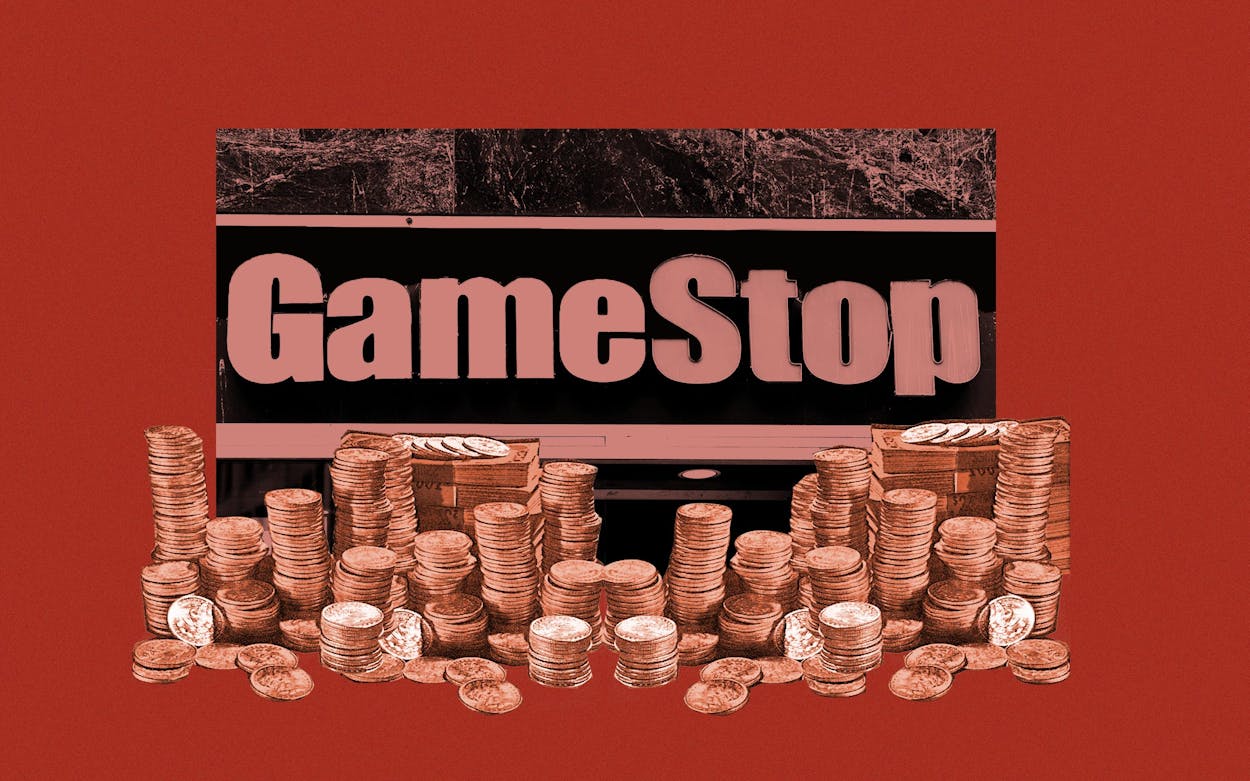WHO: Jaydyn Carr, a ten-year-old from San Antonio.
WHAT: A wacky week in the world of finance that—for at least one kid—ended simply and triumphantly.
WHY IT’S SO GREAT: At this point, you’re probably aware that there’s something going on with the stock price of Grapevine-based GameStop. If navigating the details of Wall Street leave you with a headache induced by concepts like “short-selling” and “margin calls,” we’ll break it down simply: Hedge funds “short-sold” GameStop stock, which in practice looks like a bet that the price will go down. A semi-organized group, made up largely of amateur investors, came together on the social media site Reddit to drive up the price instead, leaving short-sellers on the hook for the bets they placed. The implications for this are potentially vast, but also speculative: Did this expose widespread inequities in the stock market in a way that will bring about actual change to a broken financial system? Does it create a people-powered movement that will act as a check on unsavory Wall Street practices, by imposing financial consequences? Will it lead to a new regulatory era, in which the price of stocks is tied more fundamentally to the actual value of the companies in which shareholders are investing? Who knows!
Here’s what we do know: Jaydyn Carr received ten shares of GameStop stock as a Kwanzaa gift in December 2019, back when the now hottest stock on the market was trading for a mere $6 a share. According to the San Antonio Express-News, Carr’s mom, Nina, gave him the gift to celebrate the holiday’s principle of Ujamaa, which focuses on cooperative economics. In the year-and-change since Carr’s investment, GameStop stock value dipped and climbed a bit—but then this month, as social media users began the process of the “short squeeze,” the price went full-on bonkers. Shares of GameStop skyrocketed to a peak of more than $400.
Carr didn’t get out at the absolute peak of the market, but he came pretty close—and he followed a core principle of investing that would still make sense in a rational market built for ordinary human beings: he (well, his mom) bought low, and then they sold high, netting $3,200 in the process.
According to Madalyn Mendoza, who broke the story for the Express-News, Carr’s plans for the money are to place $2,200 of it in a less volatile place—a savings account—while the last $1,000 will go back into the market, where it’s anybody’s guess what happens to it. Another GameStop-like skyrocket is unlikely, but we’ll be rooting for him. The stock market saga of the past week has been complicated, with implications we won’t begin to fully understand for some time, as history is being written before our eyes—but one uncomplicated piece of it is that a ten-year-old boy in San Antonio was able to cash out at just the right time.
- More About:
- Best Thing in Texas
- San Antonio








